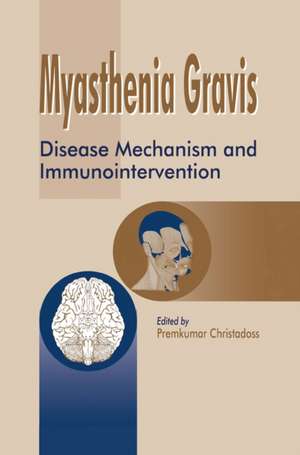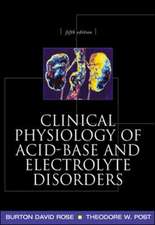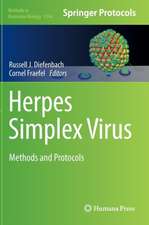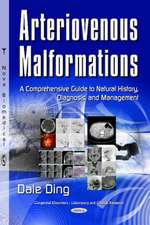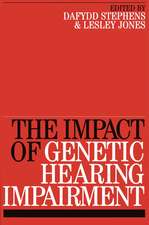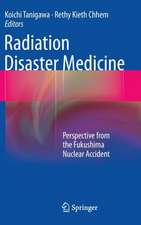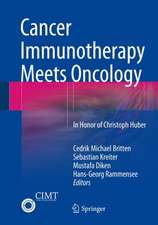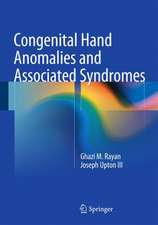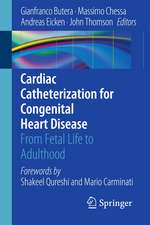Myasthenia Gravis: Disease Mechanism and Immunointervention
Editat de Premkumar Christadossen Limba Engleză Paperback – 6 noi 2012
In the last few years, rapid advances have been made in unraveling the cellular and molecular mechanisms involved in the pathogenesis of MG, both in the animal model, experimental autoimmune MG (EAMG), and in human MG. Significant advances are being made in characterizing the cells and molecules involved in the autoimmune response to the acetylcholine receptor (AChR). These advances are leading to the development of specific methods of immunointervention in EAMG. Further understanding of the intricate involvement of the major histocompatibility complex (MHC) and non-MHC genes, T cell receptors (TCR), costimulator molecules, and specific cytokines in the afferent and efferent autoimmune response of AChR should pave the way to future antigen/clone-specific therapy of MG.
This book is the outcome of the MG workshop proceedings in Mysore, India, 1998. The majority of the chapters in this book are contributed by world-renowned authors and their students. The book not only contains a timely review of specific topics, but also up-to-date findings. Immunologists and neurologists will find, in this volume, the latest in MG/EAMG cutting-edge research. Clinicians will be interested in the applications of the various immunointervention strategies into clinical trials in MG patients. Finally, students will not only be interested in reading the latest in EAMG/MG research, but will also find information to help them develop a future strategy to unravel the precise mechanism of disease.
To summarize, in this book, the readers should find up-to-date information related to immunological mechanisms involved in MG pathogenesis and various modalities for possible approaches to immunointervention to treat MG.
| Toate formatele și edițiile | Preț | Express |
|---|---|---|
| Paperback (1) | 712.09 lei 6-8 săpt. | |
| SPRINGER NETHERLANDS – 6 noi 2012 | 712.09 lei 6-8 săpt. | |
| Hardback (1) | 719.02 lei 6-8 săpt. | |
| SPRINGER NETHERLANDS – 31 aug 2000 | 719.02 lei 6-8 săpt. |
Preț: 712.09 lei
Preț vechi: 749.56 lei
-5% Nou
Puncte Express: 1068
Preț estimativ în valută:
136.26€ • 142.62$ • 113.41£
136.26€ • 142.62$ • 113.41£
Carte tipărită la comandă
Livrare economică 31 martie-14 aprilie
Preluare comenzi: 021 569.72.76
Specificații
ISBN-13: 9789401057875
ISBN-10: 9401057877
Pagini: 228
Ilustrații: XIII, 208 p.
Dimensiuni: 155 x 235 x 12 mm
Greutate: 0.33 kg
Ediția:Softcover reprint of the original 1st ed. 2000
Editura: SPRINGER NETHERLANDS
Colecția Springer
Locul publicării:Dordrecht, Netherlands
ISBN-10: 9401057877
Pagini: 228
Ilustrații: XIII, 208 p.
Dimensiuni: 155 x 235 x 12 mm
Greutate: 0.33 kg
Ediția:Softcover reprint of the original 1st ed. 2000
Editura: SPRINGER NETHERLANDS
Colecția Springer
Locul publicării:Dordrecht, Netherlands
Public țintă
ResearchCuprins
I. Mechanisms of Disease.- 1. Current Concepts on the Structure of Acetylcholine Receptor with Relevance to Myasthenia Gravis and Experimental Autoimmune Myasthenia Gravis Pathogenesis.- 2. Tolerance of a Transgenic Self Antigen Expressed in the Thymus: Implication for Myasthenia gravis.- 3. Low Levels of Acetylcholine Receptor Delta-subunit message and Protein in Human Thymus Suggests the Occurrence of “Triplet Receptors” in Thymic Myoid Cells.- 4. Aberrant Encounter of Acetylcholine Receptor-Expressing Cells with the Lymphoid Infiltrates in the Thymus of Myasthenia Gravis Patients.- 5. Expression of the Acetylcholine Receptor ?-Subunit Gene is Associated with Paraneoplastic Myasthenia Gravis in Mixed Thymoma.- 6. Abnormal Thymocyte Development and Neurofilament-Reactive Thymocytes in Thymoma.- 7. Cellular Mechanisms of Target Antigen Attack in Experimental Autoimmune Myasthenia Gravis.- Anti-Acetylcholine Receptor CD4+ T Cells in Myasthenia Gravis: Epitope repertoire and T cell receptor gene usage.- 9. Molecular Mechanisms of MHC Associations with Myasthenia Gravis.- 10. Non-MHC Genetic Polymorphisms in Human Autoimmune Myasthenia Gravis.- 11. Experimental Myasthenia Gravis in Mice: The Role of Costimulatory Molecules.- 12. Passive Myasthenia Gravis Induced in SCID Mice by Transfer of Blood Cells From Myasthenic Patients.- 13. Evidence for an Upregulation of Acetylcholine Receptor Messenger Subunits Triggered by Antibody-Mediated Receptor Internalization in Human Myasthenia Gravis Muscles.- II. Immunointervention.- 14. Oral Administration of Peptide T?l46-162 Prevents EAMG in Mice.- 15. Protective Role of Th2 Cells in Mouse Experimental Myasthenia Gravis.- 16. Antigen-Specific Therapy of Experimental Autoimmune Myasthenia Gravis: Mucosal tolerance withrecombinant fragments of the human acetylcholine receptor.- 17. Immunomodulation of Myasthenia Gravis Associated Autoimmune Responses by an Altered Peptide Ligand: Mechanisms of action.- 18. Antigen-Specific Immunointervention in Experimental Myasthenia Gravis.
